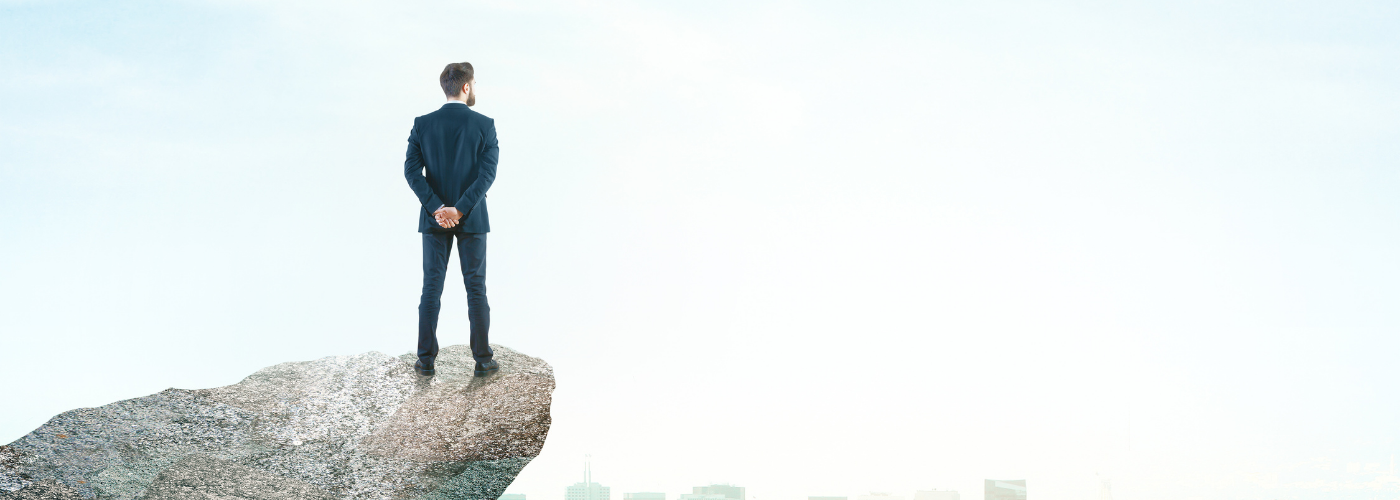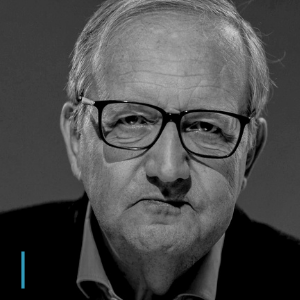Quite a number of marketers reacted enthusiastically to the idea that they need to become Human Activators to find their place in a, not only by Covid-19, rapidly changing society. The book Act Human invites these marketers to reinterpret their role in an organization and in society. Recently, we were able to pick up on such a consideration. The implicit battle between doubt and challenge.
‘Ah, the future.’ He sighed. ‘What else does the future have in store for us? The world isn’t getting any better, whatever people might claim!’
It doesn’t sound quite optimistic.
‘Now now’, I said to comfort him, ‘think about Heraclitus. He claimed that who bathes for the second time in the same river, is not irrigated by the same river, but it is eventually still the same good old river.’
My comforting words apparently don’t help. He continues complaining, ‘Yes, but it is different water.’
This is turning into a hopeless discussion: is the world changing or is he not changing? ’Maybe we are the ones who change,’ I suggest. ‘Maybe all of us change our view on the world, on that same world. Maybe that is why we react completely different to that world?’
‘All of us? Oh, the fashion trends you mean. The trend-watchers. The colours of the next summer dresses and so on. Telling the consumers what they will find in the displays. And do these trends tell us something about the changing world or do they tell us something about our changing attitude towards that world? We don’t think about that, don’t we? Or at least not for long, because after that one fashion trend another one appears.’
‘Someone who did put thought into this is professor-emeritus Helmut Gaus, from the University of Ghent, and he is probably the only one who really got to the bottom of it. He always wondered: why?’
‘Why what? Why fashion?’
‘Not why fashion, but why does fashion change, why does it present itself in certain forms? And not just fashion, but also culture in general and social dynamics, of which this fashion is only one expression. But Helmut Gaus also looked at the front pages of Der Spiegel, starting from the seventies up until now. He noticed how decade after decade they expressed optimism, egocentrism and confusion and now slowly regained confidence. He saw connections between suicide rates and …’
‘…the bright or sad colours of the summer dresses? Now don’t tell me there is a connection between sad colours and suicide!’
‘Sad clothes and an increased number in suicides coincides with a period of deep existential fear in society. When the existential fear decreases and when trust increases – let’s call it social trust – we get other manifestations, socially more constructive manifestations of that trust. Instead of existential fear, we can then speak of existential constructivism.’
‘Decrease, increase… It sounds just like a pendulum motion.’
‘That’s because it is. Helmut Gaus designed a very interesting analytical model that proves that those social changes are indeed recurring phenomena. What once again proves that there is unity in our world. You know, the river of Heraclitus: the only thing that is certain is change. And when there is unity in the change, then we can learn from that to apply it in the future.’
‘Well, that’s too bad,’ he answers, ‘if our society is paralyzed by existential fear.’
‘Hopeful, I say, if you know that the existential fear is also cyclical. If you know that those waves of existential fear turn around every twenty-five years and about every fifty years reach its summit. Or to put it even more optimistic; every fifty years we reach the summit of social trust. And confidence.’
‘Hopeful. And interesting for the trend-watchers,’ he continues, suddenly switching to being wildly optimistic. ‘Now they don’t have to wait for the trend anymore to be able to watch it.’
‘That is why Gaus calls it Future Watch. We know the current trend, but if we dare to make predictions about what the wide layers of consumers of tomorrow will add to their shopping carts, then we also need to take into account the waves of existential fear of Helmut Gaus.’
‘You are making me scared. Where are we now, in these waves?’
‘Covid-19 for sure represents a deep societal existential fear, after which we will head towards a period of renewed constructivism. Look at how all the shallow beauty is being pushed away. There are no heroes anymore. Concepts such as solidarity and helpfulness gain more importance. People are looking for social reorganisations. Woke is already the new buzzword now.’
‘That’s good! We are racing backwards towards the new Swinging Sixties!’
‘Backwards or forward, it depends on how you look at it. But we are not there yet. For that, the “brave,” the animal activists and the vegans are too caught up in aggression. Instilling fear is not the ideal way to ward off your own existential fear. Let’s just say, in President Roosevelt’s words: “The only thing we have to fear is fear itself.”
‘That’s good! We are racing backwards towards the new Swinging Sixties!’
‘Backwards or forward, it depends on how you look at it. But we are not there yet. For that, the “brave,” the animal activists and the vegans are too caught up in aggression. Instilling fear is not the ideal way to ward off your own existential fear. Let’s just say, in President Roosevelt’s words: “The only thing we have to fear is fear itself.”


